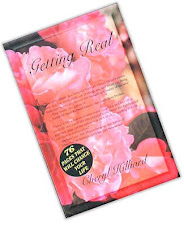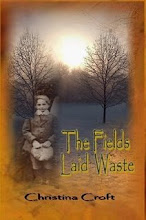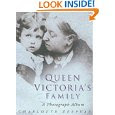In spite of the frosts and cold, the first snowdrops appeared a couple of days ago and brought such lovely thoughts of spring. The birds have already begun their dawn and evening choruses and after this exceptionally cold winter, it feels like it could really be spring at last.
Wordsworth's poetry is, to me, too verbose and kind of 'cluttered'. Too many words that say so little as though he is attempting to express something simple but ends up complicating himself with silly phrases. The 'Prelude' has some fabulous lines, but his later works leave me wondering why he is ranked as one of the 'greats'. I mean take for example his poem 'To a Snowdrop' - it is almost as bad as Shelley's 'Skylark' - 'bird thou never wert....'
Ah well, the snowdrops have appeared and anyone who has ever seen snowdrops after snow appreciates their fragile beauty. It might have been better if Wordsworth had written far more simply than these clumsy lines ('harbinger' seems to be a particularly favourite word with poets of that era):
Lone Flower, hemmed in with snows and white as they
But hardier far, once more I see thee bend
Thy forehead, as if fearful to offend,
Like an unbidden guest. Though day by day,
Storms, sallying from the mountain-tops, waylay
The rising sun, and on the plains descend;
Yet art thou welcome, welcome as a friend
Whose zeal outruns his promise! Blue-eyed May
Shall soon behold this border thickly set
With bright jonquils, their odours lavishing
On the soft west-wind and his frolic peers;
Nor will I then thy modest grace forget,
Chaste Snowdrop, venturous harbinger of Spring,
And pensive monitor of fleeting years!
The Original "Getting Real"

Please click on the picture to order this book.
Hilliard & Croft Books
Welcome to our blog!
Christina is represented by
Leo Media & Entertainment
We have many new projects currently underway and hope that you will enjoy our blog as well as our books and website:
Hilliard & Croft
Christina is represented by
Leo Media & Entertainment
We have many new projects currently underway and hope that you will enjoy our blog as well as our books and website:
Hilliard & Croft
Friday 19 February 2010
Tuesday 16 February 2010
"Seven Ages of Britain" and the Cheapside Hoard
The endlessly fascinating "Seven Ages of Britain", written and presented by the excellent David Dimbleby traces the history of Britain through art. So far the series has travelled through the ages of the conquests up to 1066, on through the era of the great Cathedrals and religious art and up to the extravagance of the Tudors. Some of the items shown are utterly beautiful. From his dangling from a wire to view a fresco of heaven and hell, to his trudging through the snow, quoting Beowulf in Anglo-Saxon, Mr. Dimbleby has presented one of the most beautiful series seen in a long time (haven't seen any documentary quite so absorbing since Jeremy Paxman presented the Victorians through their art). One of the most mesmerising moments was the display of the 'Cheapside Hoard' - a find of incredibly beautiful jewels displaying such a myriad of colour and such delicate craftsmanship. There is a wonderful article about the hoard here:
The Cheapside Hoard
The Cheapside Hoard
Saturday 13 February 2010
St. Valentine's Day

For St. Valentine's Day, some of the loveliest and best known love poems:
How do I love thee? Let me count the ways.
I love thee to the depth and breadth and height
My soul can reach, when feeling out of sight
For the ends of Being and ideal Grace.
I love thee to the level of every day's
Most quiet need, by sun and candlelight.
I love thee freely, as men strive for Right;
I love thee purely, as they turn from Praise.
I love with a passion put to use
In my old griefs, and with my childhood's faith.
I love thee with a love I seemed to lose
With my lost saints, I love thee with the breath,
Smiles, tears, of all my life! and, if God choose,
I shall but love thee better after death.
(Elizabeth Barrett Browning)
I do not love thee!--no! I do not love thee!
And yet when thou art absent I am sad;
And envy even the bright blue sky above thee,
Whose quiet stars may see thee and be glad.
I do not love thee!--yet, I know not why,
Whate'er thou dost seems still well done, to me:
And often in my solitude I sigh
That those I do love are not more like thee!
I do not love thee!--yet, when thou art gone,
I hate the sound (though those who speak be dear)
Which breaks the lingering echo of the tone
Thy voice of music leaves upon my ear.
I do not love thee!--yet thy speaking eyes,
With their deep, bright, and most expressive blue,
Between me and the midnight heaven arise,
Oftener than any eyes I ever knew.
I know I do not love thee! yet, alas!
Others will scarcely trust my candid heart;
And oft I catch them smiling as they pass,
Because they see me gazing where thou art.
(Caroline Norton)
Let me not to the marriage of true minds
Admit impediments. Love is not love
Which alters when it alteration finds,
Or bends with the remover to remove:
O no! it is an ever-fixed mark
That looks on tempests and is never shaken;
It is the star to every wandering bark,
Whose worth's unknown, although his height be taken.
Love's not Time's fool, though rosy lips and cheeks
Within his bending sickle's compass come:
Love alters not with his brief hours and weeks,
But bears it out even to the edge of doom.
If this be error and upon me proved,
I never writ, nor no man ever loved.
(William Shakespeare)
And some beautiful poetry spoken by Juliet in "Romeo & Juliet"
Wilt thou be gone? it is not yet near day:
It was the nightingale, and not the lark,
That pierced the fearful hollow of thine ear;
Nightly she sings on yon pomegranate-tree:
Believe me, love, it was the nightingale....
Give me my Romeo; and, when he shall die,
Take him and cut him out in little stars,
And he will make the face of heaven so fine
That all the world will be in love with night
And pay no worship to the garish sun.
At risk of becoming too mushy...a little of the cynical Dorothy Parker to lighten the mood!
A single flow'r he sent me, since we met.
All tenderly his messenger he chose;
Deep-hearted, pure, with scented dew still wet -
One perfect rose.
I knew the language of the floweret;
'My fragile leaves,' it said, 'his heart enclose.'
Love long has taken for his amulet
One perfect rose.
Why is it no one ever sent me yet
One perfect limousine do you suppose?
Ah no, it's always just my luck to get
One perfect rose.
If you read this, I wish you love and happiness wherever and whoever you are!
Saturday 6 February 2010
Grammar Matters
Is it pedantic to be irked by the commonly used expression, "You have two choices...you can do this or this..." ? It is said all the time and it is silly! That isn't two choices - it is one choice: an either, or! Two choice would be this and this or this and this! It is irksome on the same lines as the ubiquitous apostrophe in describing decades. It is common to see 1980's, 1990's (which means, 'of 1980' or 'of 1990'). The 1980s don't need that apostrophe, do they?? Of course, none of it really matters and language develops alongside grammar but, at the same time, the rudiments of grammar are part of our heritage and deserve to be preserved alongside historic buildings and national treasures, simply because they are beautiful!
Mathematicians find beauty in numbers and, though I do not understand numbers so well, their ability to see the musical perfection in equations and patterns is something like a work of art to me. I might not understand it but it's wonderful to appreciate people who do understand it. There is precision in it and 'God is in the detail'. It seems that the same is true of language and the use of words. Words are so precious and syntax and phraseology are so fascinating and developed through many centuries. It cannot be correct to throw them around and discard all the precision that has gone into the making of literature and wonderful poetry and prose throughout ages.
Grammar matters, just as precision in art or mathematics matters. In throwing out the basics of our language, we throw away eons of our history and the refinements of past ages.
Mathematicians find beauty in numbers and, though I do not understand numbers so well, their ability to see the musical perfection in equations and patterns is something like a work of art to me. I might not understand it but it's wonderful to appreciate people who do understand it. There is precision in it and 'God is in the detail'. It seems that the same is true of language and the use of words. Words are so precious and syntax and phraseology are so fascinating and developed through many centuries. It cannot be correct to throw them around and discard all the precision that has gone into the making of literature and wonderful poetry and prose throughout ages.
Grammar matters, just as precision in art or mathematics matters. In throwing out the basics of our language, we throw away eons of our history and the refinements of past ages.
Friday 5 February 2010
By Any Other Name
Many years ago, I had a first-hand experience of meeting with an elderly lady who had been confined in a psychiatric hospital since her early 20s and was completely institutionalised and unable to live independently. At the time of her confinement, however, she had been a perfectly healthy young woman and the sole reason for her commitment to the place was that she had had a child and was not married. I believe this was not an uncommon practice in the first half of the last century and the hypocrisy that led to so many wasted lives is so tragic.
Although my first novel By Any Other Name was loosely inspired by this story, it is set in the late 1980s and has quite a different twist to it.
Excerpt from the opening chapter:
It occurred to Maria that even in death there could be no equality among the people of Farnleigh. On the western side of the church, tall white shrines of stone stood guarded by golden angels. Here, in the permanent shadow of the trees, unmarked mounds grew to waste beside rows of uniform grey headstones engraved with the names of eight or nine paupers of the last century. The workhouse graves, the penny graves, the sixpenny graves; the hierarchical burial system of deciding how near a body should lie to the church according to what the relatives were willing or able to pay.
Maria moved slowly from one stone to the next, pausing occasionally to clear away the moss with her finger before moving on. Sometimes she turned, startled by leaves falling into the undergrowth behind her, and she held her breath against the stench of decaying fruit and foliage emanating from the mounds of earth.
Available on Amazon Kindle: By Any Other Name
Although my first novel By Any Other Name was loosely inspired by this story, it is set in the late 1980s and has quite a different twist to it.
Excerpt from the opening chapter:
It occurred to Maria that even in death there could be no equality among the people of Farnleigh. On the western side of the church, tall white shrines of stone stood guarded by golden angels. Here, in the permanent shadow of the trees, unmarked mounds grew to waste beside rows of uniform grey headstones engraved with the names of eight or nine paupers of the last century. The workhouse graves, the penny graves, the sixpenny graves; the hierarchical burial system of deciding how near a body should lie to the church according to what the relatives were willing or able to pay.
Maria moved slowly from one stone to the next, pausing occasionally to clear away the moss with her finger before moving on. Sometimes she turned, startled by leaves falling into the undergrowth behind her, and she held her breath against the stench of decaying fruit and foliage emanating from the mounds of earth.
Available on Amazon Kindle: By Any Other Name
Subscribe to:
Posts (Atom)















